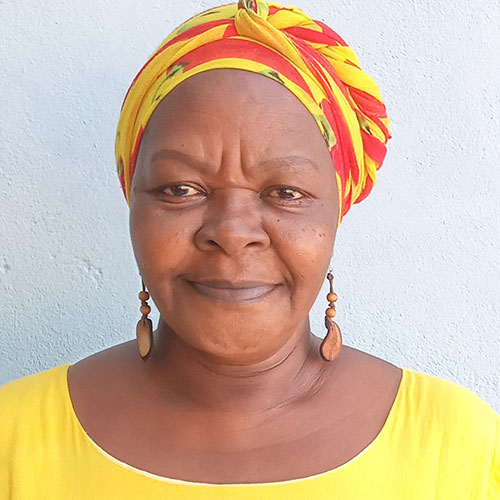NGO Grupo Adolescer helps teenagers to find new life perspectives
The NGO Grupo Adolescer has as its objective to offer the participants teenagers new perspectives of life through a human formation called AMIN - Adolescentes Multiplicadores de Informações (‘Teens Multipliers of Information’)


Operating since 2000, the NGO Grupo Adolescer – Saúde, Educação e Cidadania is an civil-society organization that strengthens the community development, promoting the human formation of children, teenagers, young adults and their relatives. The initiative has already graduated 2 thousand people and attends residents in the favela’s communities of Caranguejo/Tabaiares, Santo Amaro, Roda de Fogo and Santa Luzia, all in social vulnerability and located in Recife, city of Pernambuco, Northeast region of Brazil.
Founded by a group of health and education professionals, the NGO Grupo Adolescer has as its objective to offer the participants teenagers new perspectives of life through a human formation called AMIN – Adolescentes Multiplicadores de Informações (‘Teens Multipliers of Information’), with a four year duration. This formation makes it possible for teens to interact in a positive way with their pairs by enlightenment and guidance.
In addition to that, the group seeks to stimulate the teenagers’ interest and sense of responsibility towards social and political issues in their communities, fomenting the will to contribute to overcoming difficult situations in their daily life contexts. In order to act in a more preventive way, the group amplified, in the end of 2006, its educative act for children aged 7 with the program Aprender Brincando. At the same time, it broadened the media to a local, national and international level, established links with universities, deepened the cooperation between other entities in the children and youth area and intensified the contacts with leaderships and communitaries organizations in the group’s insertion places, developing, including income generation and sustainability activities.
Além disso, o grupo visa a estimular o interesse e o senso de responsabilidade dos adolescentes em relação às questões sociais e políticas das suas comunidades, fomentando a vontade de contribuir para a superação de situações difíceis em seus contextos de vidas no dia a dia. No sentido de agir de forma mais preventiva, o grupo ampliou, no final de 2006, a sua atuação educativa para crianças a partir de sete anos com o Programa Aprender Brincando. Paralelamente, tornou mais vasto o trabalho de mídia a nível local, nacional e internacional, estabeleceu vínculos com Universidades, aprofundou a cooperação com outras entidades da área infanto-juvenil e intensificou contatos com lideranças e organizações comunitárias nos locais de inserção do grupo, desenvolvendo, inclusive, atividades de geração de renda e sustentabilidade.
Pioneer methodology
Daniela Arauújo, institutional and projects coordinator, says that now Grupo Adolescer is established in Recife in what refers to working with children and teenagers and that the pedagogical methodology applied in the projects is considered pioneer. It is based in the concept of Peer-Educations, which is the education by pais: teenagers of the same age and socio economic situation orient each other, generating a multiplier effect and becoming co-responsables for improving their quality of life.
The NGO Grupo Adolescer has two programs: the CRIAPAZ, of thematic formation with kids, and the PAZAMIN, which advocates for a non-violent community, involving teenagers and young adults. The social thematic formations happen on mondays, wednesdays and fridays, in the opposite school shift, besides de formations with the students’ families. The initiative also acts along with the Communitary Forum, the Conflict Mediation Centers, the Violence Observatory, the Community Network Strengthen and the youth in general.
The institution seeks to become a reference in the direct work with children, teenagers and young adults aimed to reduce the violence in the community and school context in the state of Pernambuco. Building this reference evolves strengthening the work with relatives and black women, advance in the teacher training process, as well as structuring and giving visibility to communitary devices as the Conflict Mediation Centers, the Violence Observatory and the Communitaru Forum within the scope of the communities where they are installed and others that are in vulnerable situations. It also implies to become a reference along with the networks that works to fight sexual violence against children and teenagers, public safety, community treatment and conflict mediation on local and nacional scopes and in Latin America. “We have as principals the care for the being, training for citizenship, multiplication of information, fomenting the peace culture, creating a participatory management and practice solidarity”, complements Daniela.
Achieved results
Among the achieved results up until now, the NGO created devices that contribute to the communitary development, made partnerships with schools and public organs. strengthen itself through networks and forums, reduced the communitary violence through street actions, has made campaigns of multiplication from the methodologies of Peer-Education and Communitary Treatment.
About the challenges faced, Daniela Araújo says that the biggest ones are the ones on the scopes of communitary violence, the government absence, the lack of opportunities for the youth and the limitations of resources to reinforcing continuous actions of the institution.
How to help?
To support the Grupo Adolescer, click here.
To know more about the intitution, access the website.
To support this initiative, follow the group on Instagram, like and share the posts.
You can also indicate Public or Private Announcements, such as contribute with the activities generally.
Get in touch!



